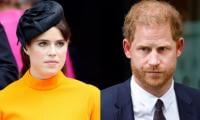what.)
It’s a big claim but Hersh makes it: our chiefs come on board. Yes, he’s there but we had to keep OBL as a check on Al-Qaeda and the Taliban – which, incidentally, is the silliest line in this saga. Al-Qaeda and the Taliban were terrorizing the hell out of Pakistan at that time. So what exactly was being achieved by keeping the lord of terror jihad in custody?
Bin Laden was very ill, virtually on his deathbed (it had been arranged for a Dr Amir Aziz to be near him for his treatment…is this a reference to the well-known orthopaedic surgeon from Lahore?). It was agreed the Pakistani side would look the other way, ensuring that no radar or stray aircraft interfered with the raid as it was carried out. But our side insisted on one safeguard, that the raid would not be disclosed. Instead a week or ten days later it would be said that somewhere along the Pak-Afghan border, deep in the Hindu Kush mountains, Bin Laden had been ‘taken out’ in a drone strike.
This is where it went wrong for the Pakistani side. As soon as the raiding helicopters were back on base in Afghanistan, President Obama went on the airwaves with the bombshell announcement that OBL had been eliminated. The Pakistani side had simply failed to figure out that there was no way an American president up for re-election would keep his lips sealed after such a triumph.
If the raid had gone wrong, someone is quoted as saying, Obama would just have been a black Jimmy Carter. When it turned out right, Obama made the most of it and Gen Kayani and Gen Pasha were left in the lurch.
We know that General Headquarters went into deep shock. Most of us thought this was because of having been caught off guard. From Hersh’s account something else emerges: Kayani and Pasha feeling let down and betrayed.
Appearances, in any event, could not be more damning. Either Pakistan’s intelligence operatives knew of Osama’s presence in Abbottabad…in which case they were complicit; or they knew nothing and were taken unawares, which makes them look like the world’s leading dunces.
What made it worse for the Generalisssimo and his spy chief was the fact that they could do nothing about the mortification they endured. They could neither denounce the Americans for not living up to their side of the bargain, nor claim that they had aided the Americans, for that would have made them look like stooges. So they nursed their sullenness in silence.
Kayani and Pasha never really recovered from the Abbottabad debacle, looking diminished thereafter. Although I must say that when called upon to explain matters at an in camera joint session of parliament – I was there and Kayani in full regalia sat in the Speaker’s box watching the performance – Pasha had the nerve and composure to read out to the assembled parliamentarians a lecture on national honour and dignity. I thought to myself then and am more than convinced now that Pasha may have missed his true vocation – he would have made a name for himself in the performing arts.
Kayani, remember, was fond of saying that Pakistan was a Fortress of Islam. Taking his word for it, the Abbottabad episode does not cast a very flattering light on the Fortress and its extended ramparts.
But all this is to assume that Hersh is fully on the mark. I spoke to one retired general who’s also been ambassador to the US and he said that he wouldn’t buy Hersh’s story. He said that he met Kayani a few days after the OBL raid and the army chief was totally distraught by what had happened. If the Americans had told us, he quoted Kayani as saying, they could have carried out their raid in daylight. He went on to say that unless Kayani was putting on a performance, he believed him.
How well does Hersh stand as an investigative reporter? Some of his major stories – such as on the My Lai massacre – have stood the test of time. He got the Pulitzer Prize for that. Some stories he got plain wrong, such as some of his reporting way back on John F Kennedy’s sexual escapades. He has been criticised for his use of anonymous sources. The OBL story is also largely based on a single source, a US official privy to those secrets. On the whole, however, he is taken as a serious and influential reporter, with a reputation for diligently pursuing his stories.
The bit about someone walking into the American embassy with information on Bin Laden sounds true. Ramzi Yousef was caught on the basis of human intelligence. Khalid Sheikh Mohammed was caught from the house of a Jamaat-e-Islami sympathiser after someone informed the Americans. Money is a great incentive and the Americans have put out huge sums on the heads of their most wanted men.
I have a shrewd suspicion who the informant in this case could be. Years ago in Islamabad I used to come across a colourful character then commanding the MI battalion in GHQ. He would be accompanied by a girlfriend, an air stewardess rather easy on the eyes (as can be guessed, I envied envy him for that). Soon after Abbottabad I heard his name being whispered. If he’s our man I hope he is living it up wherever he is.
In the end, however, Allah knoweth best. But there’s no getting around the central awkward fact that Sheikh Osama was in Abbottabad for full five years, living in a house almost calculated to look like a sore thumb. How did he keep his head below the radar for so long?
Email: bhagwal63@gmail.com
According to Chanakya, secret of strong nation lies in ability to protect its citizens
Rapid economic progress was made possible under Modi's leadership if not ‘Modi's guarantee’
Pakistan was considered water-abundant country, with per capita water availability being 5650 cubic meters in 1951
Shrine of Mian Mir.—TheNews/FileMy history professor once referred to a theory that says the developmental telos of...
If Pakistan does not take prompt and decisive action, it could find itself at forefront of world's first water conflict
Please note that dam survey team from World Bank had proposed building of this dam in 1955







